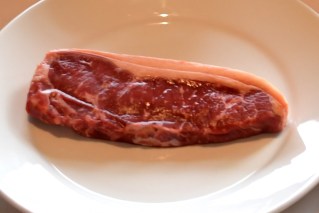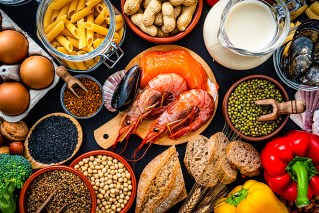Fridge benefits: a guide to what to put in, what to leave out


Coffee is a fresh product, like bananas, and should be be treated as such. Photo: Getty
Have you ever argued with your husband or housemate about whether the coffee and chocolate should be put in the fridge or cupboard?
COFFEE
Roasted espresso or filter coffee should always be stored in cool, dark spot in an airtight container, according to Marinus Jansen, managing director of Padre Coffee, and Roast IQ.
“Not in the fridge, as food odours leach into the absorbent coffee,” Mr Jansen says. “And definitely not in the freezer. Nothing in coffee freezes.”
Using the freezer gives a false sense of security to people buying coffee beans irregularly, he says.
“It’s a fresh product – like a banana – and needs to be treated as such.”
And what about instant coffee?
“The nearest bin. Instant is not good for farmers and in my opinion should not be encouraged.”
RAW CHOCOLATE
Pana Chocolate is handmade, organic raw, vegan, gluten, soy and dairy-free chocolate taking the world by storm, now stocked in over 25 countries.
Founder, Pana Barbounis recommends storing his chocolate below 18 degrees Celsius.
“During the height of Summer or the depths of Winter (when the heating is turned up), this generally means the fridge,” Mr Barbounis says.
“But it’s also up to personal preference, and what texture you like. Depending on my mood, sometimes I want cool and crunchy, or sometimes a melt-in-my-mouth fudgy feel.”
Mr Barbounis says many commercial brands of chocolate often contain high levels of refined sugar and additives, which means they have a higher melting temperature and can sit out of refrigeration with little risk of melting.
NUTS
Education organisation, Nuts for Life, says to keep nuts in the best condition, they must be stored in an airtight container in the refrigerator or freezer. Nuts can be refrigerated up to four months and frozen up to six months for perfect freshness.
HERBS
Soft herbs, like coriander and parsley, are best treated like a bouquet of flowers.
Trim the stem ends, place in a glass of water, cover with a plastic bag and store them in the fridge, changing the water every couple of days.
Basil, however is best stored on a sunny kitchen bench in a glass of water.
According to epicurious.com, woody herbs, such as rosemary or thyme, should be wrapped loosely in a damp paper towel, then put in an airtight container or re-sealable bag in the crisper. The paper towel keeps the herbs just moist enough so they don’t dry out and the airtight container keeps oxygen out.
EGGS
“Unless you have a cellar, it’s best to store eggs in the top shelf in the fridge in the carton,” says Shelley Green, owner of Green Eggs which produces 35,000 eggs a day.
“Eggs are best stored between 10 and 16 degrees Celsius. Coolness maintains the egg’s integrity for longer and they can last for six weeks in the fridge. As nice as a mob of eggs are on the bench, our homes are too hot for them,” Ms Green says.
SAUCES
“Most sauces are traditionally made with salt, sugar or vinegar to preserve them so they are fine for up to four weeks outside the refrigerator,” says Dr Duane Mellor, adjunct associate professor at University of Canberra and senior lecturer in nutrition at Coventry University.
“If you’re purchasing a sauce with a modified recipe that has lower salt or sugar then you may need to refrigerate it.”
POTATOES
Do not keep your potatoes in the fridge, as the starches in the potato will break down. While there’s no risk associated with this, it does create a weird taste when you eat it and may also cause colour changes.
AVOCADOS
Avocados are best stored at room temperate until they ripen.
If your avocado has ripened to perfection, but you don’t need to use it at that exact moment, pop it in the fridge, but for only two to three days for optimum taste and texture.
Read here for the best way to keep avocados fresh
BANANAS
Don’t keep your bananas in the fridge, as their natural climate is warm.
Peel and store overripe bananas in an airtight bag in the freezer.








